Throughout the eight days of Hanukkah, Jewish families like mine celebrate by eating latkes (fried potato pancakes) and sufganiyot (fried jelly doughnuts). Notice a theme?
Traditional Hanukkah foods are often fried because they’re reminders of the oil in the legendary Hanukkah story. Here’s a guide to these and other traditional Hanukkah foods, as well as their significance.
What is Hanukkah?
Hanukkah, also known as the Festival of Lights, is a Jewish holiday that celebrates the ancient Jews’ reclamation of their temple in Jerusalem after occupation by the Syrian-Greek empire.
As the story goes, the Jewish Maccabees reentered the temple and found only a tiny bit of oil—barely enough to burn their lamps for one day. Instead, the oil burned for eight days—a Hanukkah miracle.
Since Hanukkah typically falls in December, it’s often considered the Jewish version of Christmas. But Hanukkah is a minor Jewish festival—far less significant than the Jewish High Holidays of Rosh Hashanah and Yom Kippur. Still, Hanukkah is a fun winter celebration—and it doesn’t hurt that it’s associated with lots of good food.
Traditional Hanukkah Foods
There are dozens of Hanukkah recipes to make during the eight-day celebration, but here are some of the most traditional Hanukkah foods.
Latkes
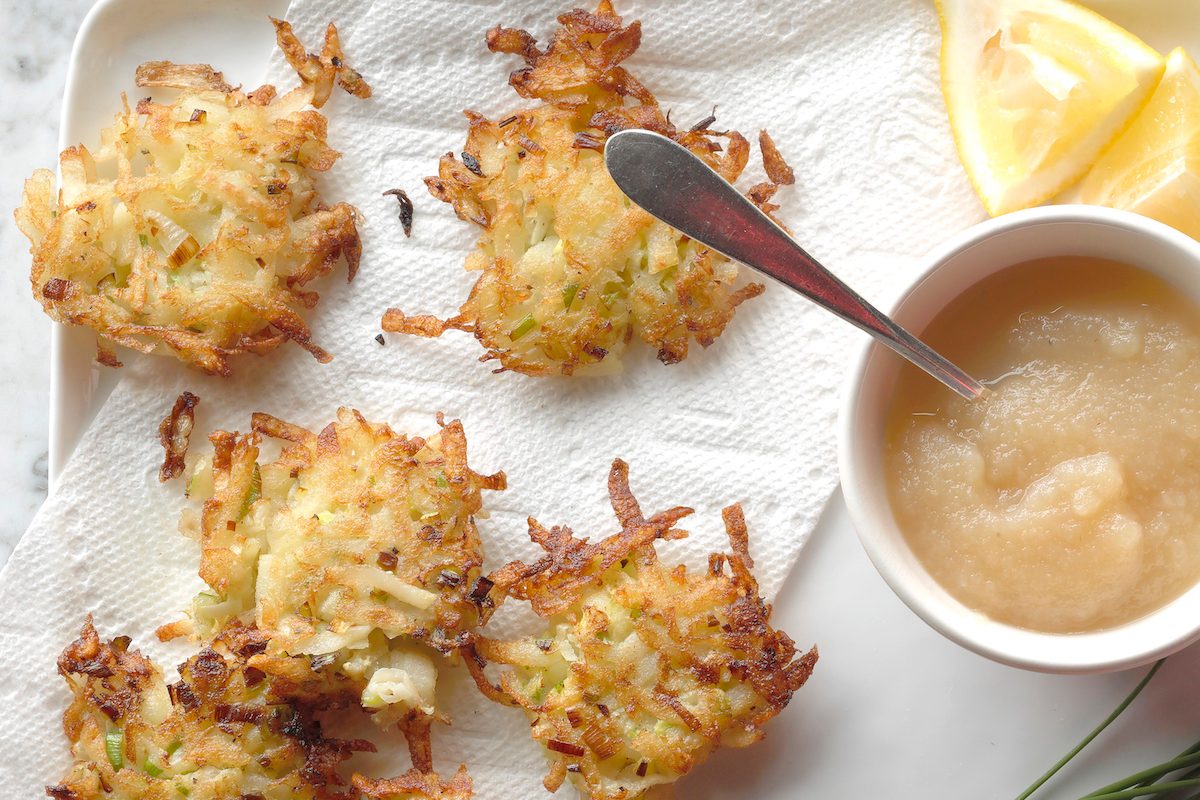
Traditionally, latkes are fried potato pancakes eaten to remember the oil miracle in the Hanukkah story. There are many latke variations, including sweet potato, zucchini and cheese and red pepper.
Editor’s tip: Here’s how to make latkes step by step. It’s a time-consuming process, but latkes freeze well, so you can make them ahead of time.
Applesauce and Sour Cream
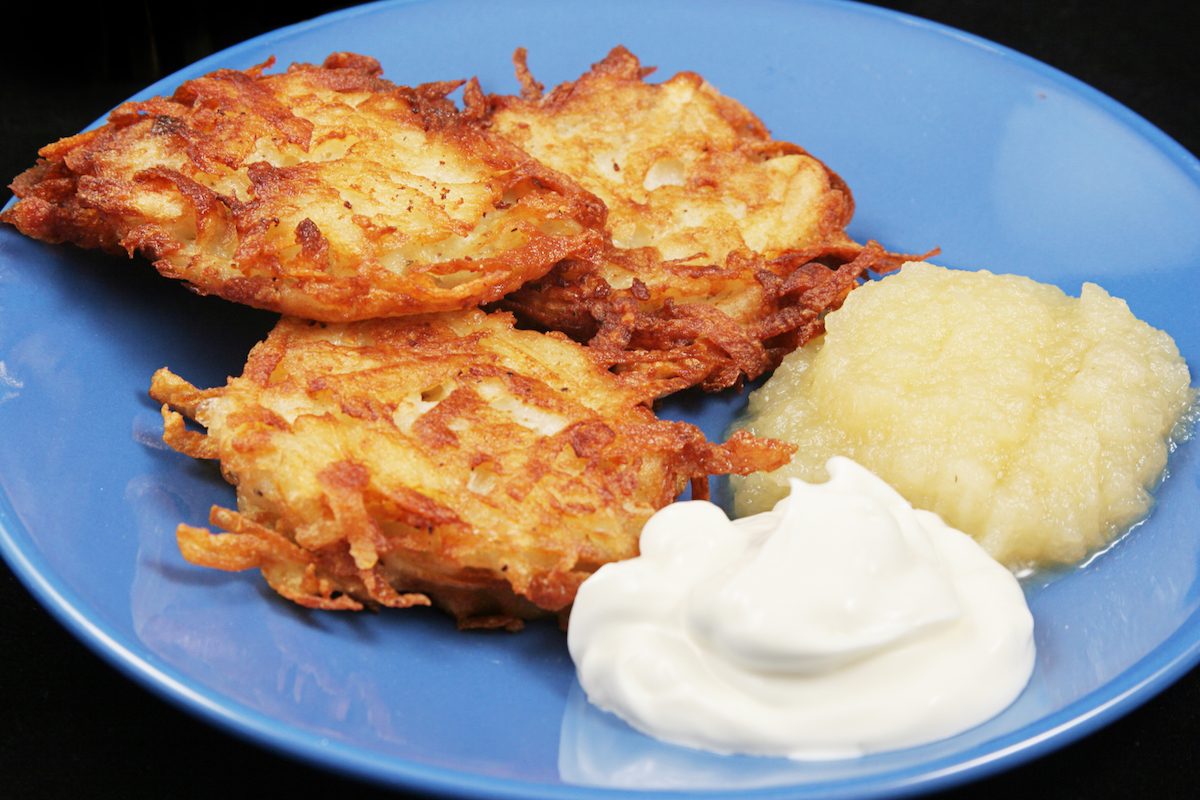
Applesauce and sour cream are the most popular latke toppings. They can be playfully divisive—ask any Jewish person in your life which they prefer, and they’ll likely have strong opinions. (So if you’re hosting a Hanukkah latke party, make sure you have both!)
Whether you personally opt for applesauce or sour cream (or both!), these cool, smooth toppings provide the perfect contrast to piping hot, crispy latkes.
Editor’s tip: Store-bought sour cream and applesauce work just fine, but take your latkes up a notch with homemade applesauce.
Sufganiyot
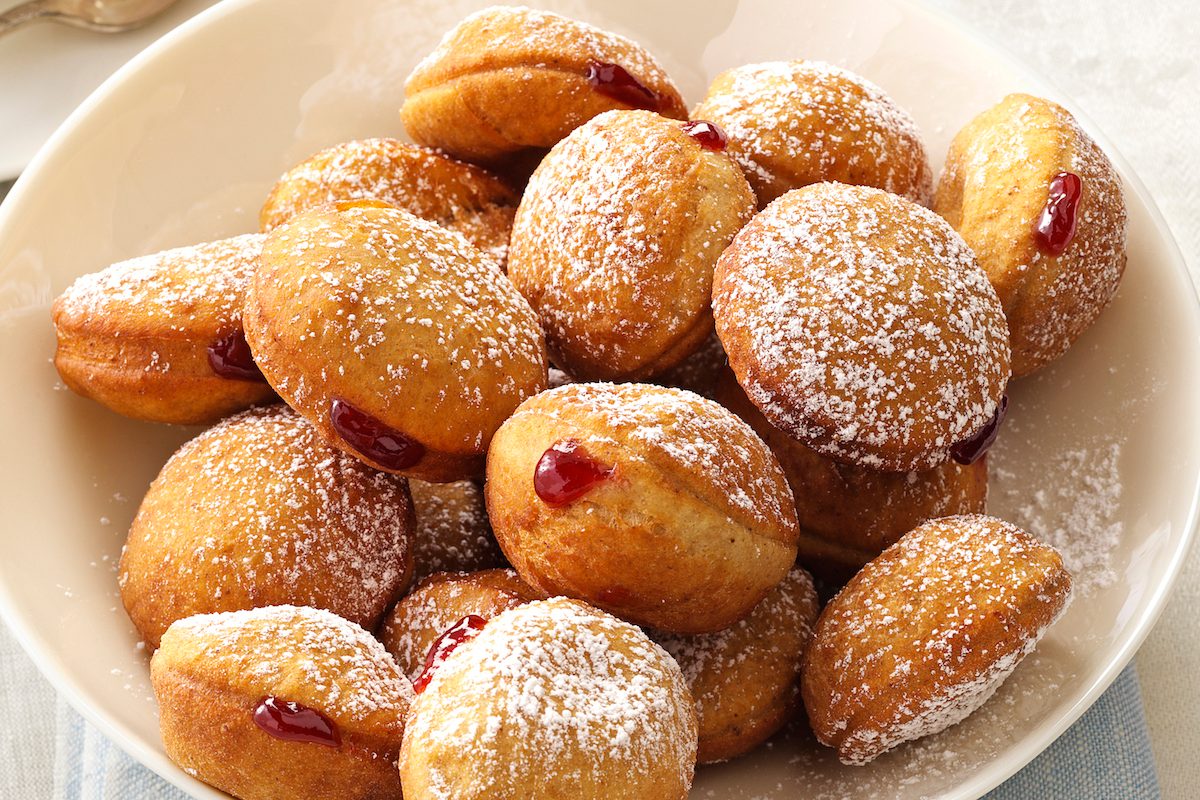
Fried jelly doughnuts are another reminder of the Hanukkah oil miracle. In Israel and many Jewish communities in the U.S. they’re called sufganiot, which is the Hebrew word for donuts. They’re related to sfinge, Moroccan doughnuts that are also associated with Hanukkah.
Gelt
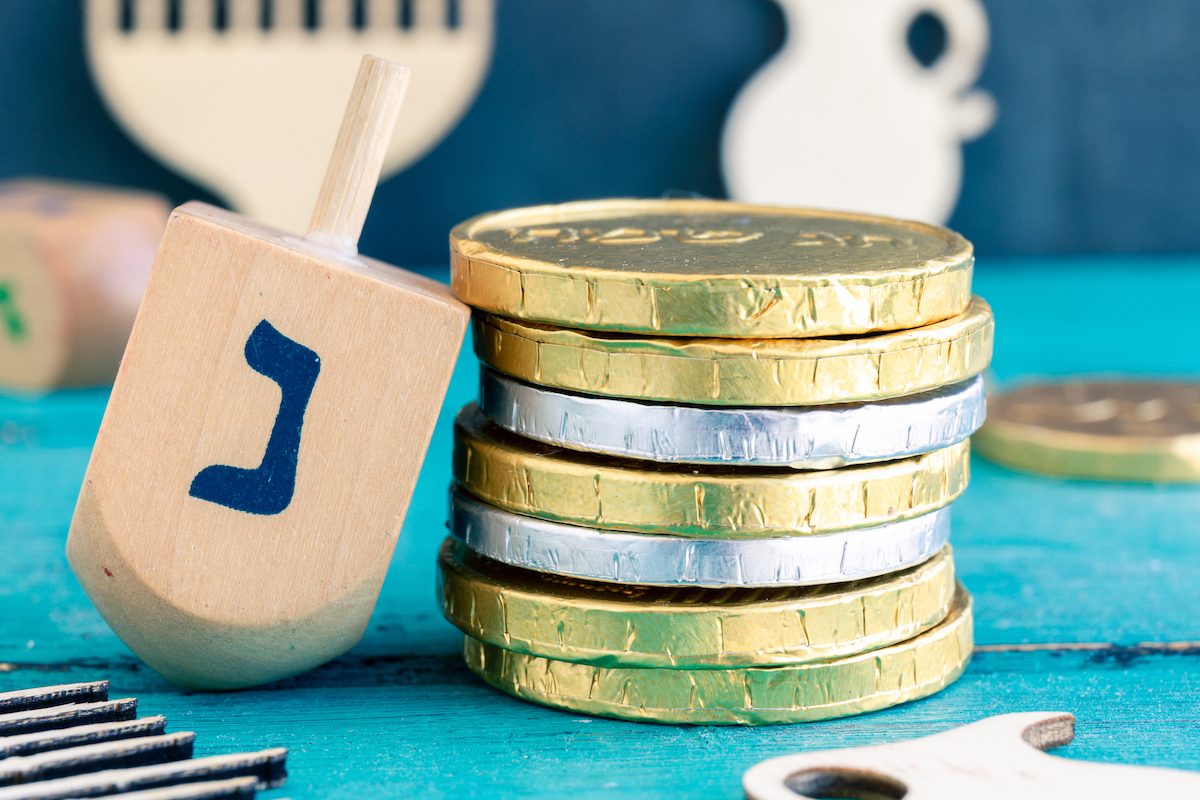
Gelt refers to wrapped chocolate coins that are used to play dreidel, a traditional Hanukkah game. A dreidel is a top with four sides, each with a different Hebrew letter. Each letter represents a word in a Hebrew saying that means “a great miracle happened there” (referring to Israel, where the Hanukkah story took place).
To play the dreidel game, players each start with several pieces of gelt and take turns spinning the top. Depending on which letter the dreidel lands on, players have to give or take gelt from the center “pot.” The game ends when one player wins all of the gelt.
Editor’s tip: Many people use store-bought gelt—it’s readily available at many retailers in December. You can also use pennies, M&M’s or make homemade gelt using our recipe below.
Hanukkah Cookies

Hanukkah cookies may not be as traditional as latkes or sufganiot, but they’re a popular way to celebrate the holiday. Common cookie shapes for Hanukkah include dreidels, menorahs (the nine-pronged Hanukkah candle holder) and stars of David.
Editor’s tip: To mix up your sweets spread, include some other Hannukah desserts, such as rugelach, babka and mandelbrot.
Brisket
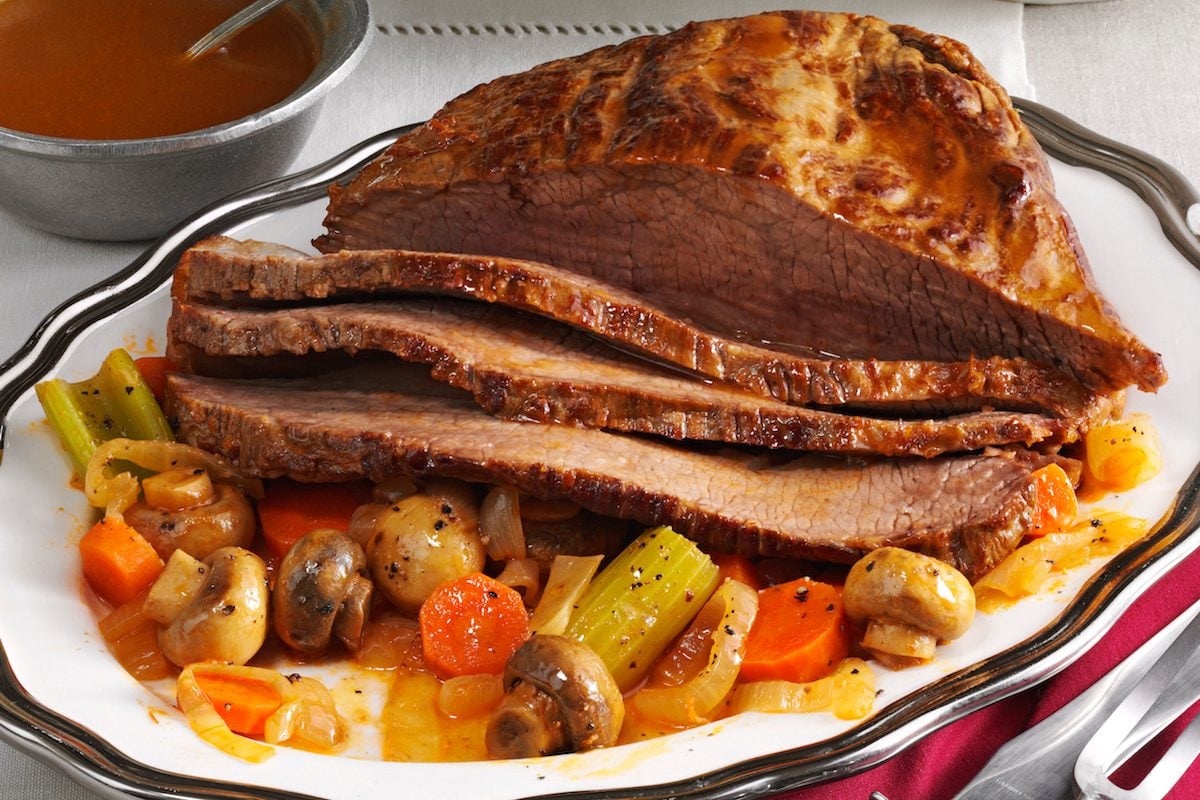
Brisket is a popular entree in many Jewish households for holidays including Hanukkah, but also for Rosh Hashanah and Passover. Different from Texas-style barbecue brisket, Jewish brisket is braised—often with carrots, potatoes and other vegetables.
Editor’s tip: When you’re buying brisket meat, look for a piece with lots of marbling—it’ll make for a more flavorful dish.
Kugel
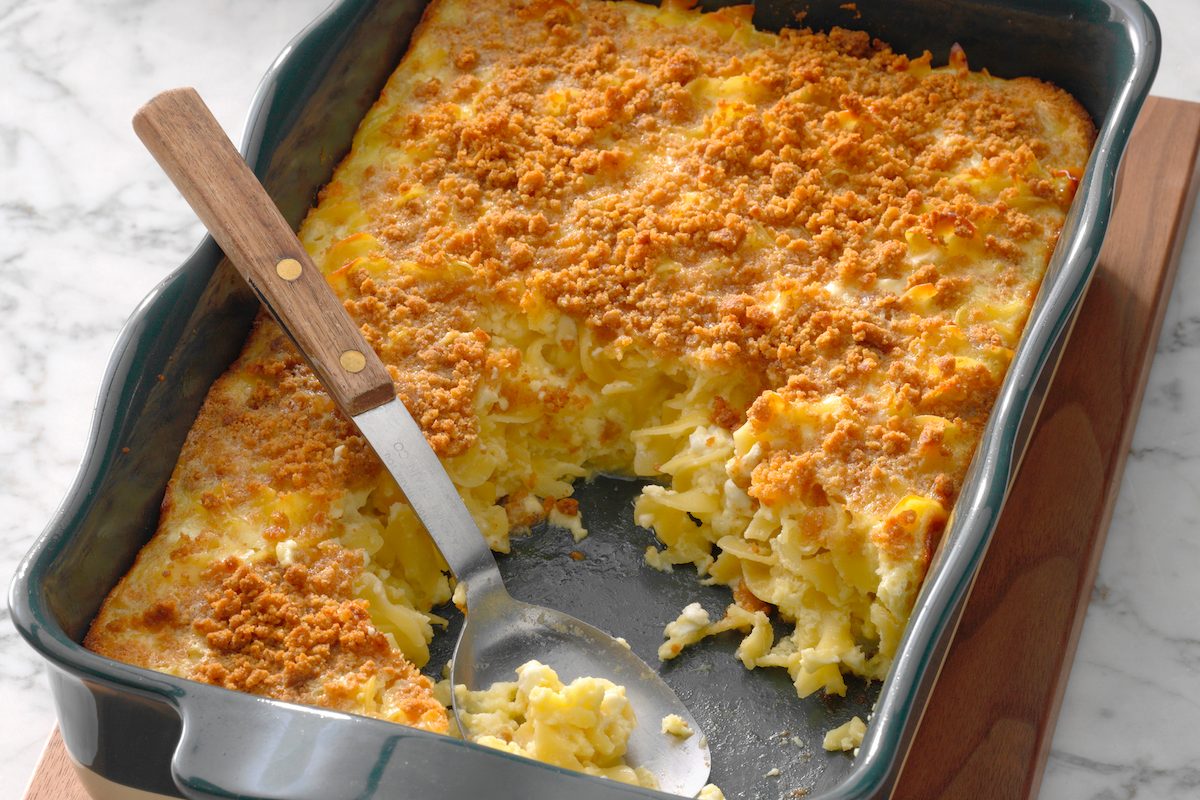
Kugel is a traditional Jewish noodle casserole dish that can either be sweet or savory, depending on who’s making it. Sweet versions, such as the one in the recipe below, often include cottage cheese, eggs, sugar, cinnamon and sometimes raisins. Savory versions may include garlic, onions and other vegetables.
The post Your Guide to 7 Traditional Hanukkah Foods appeared first on Taste of Home.
Teddy Nykiel